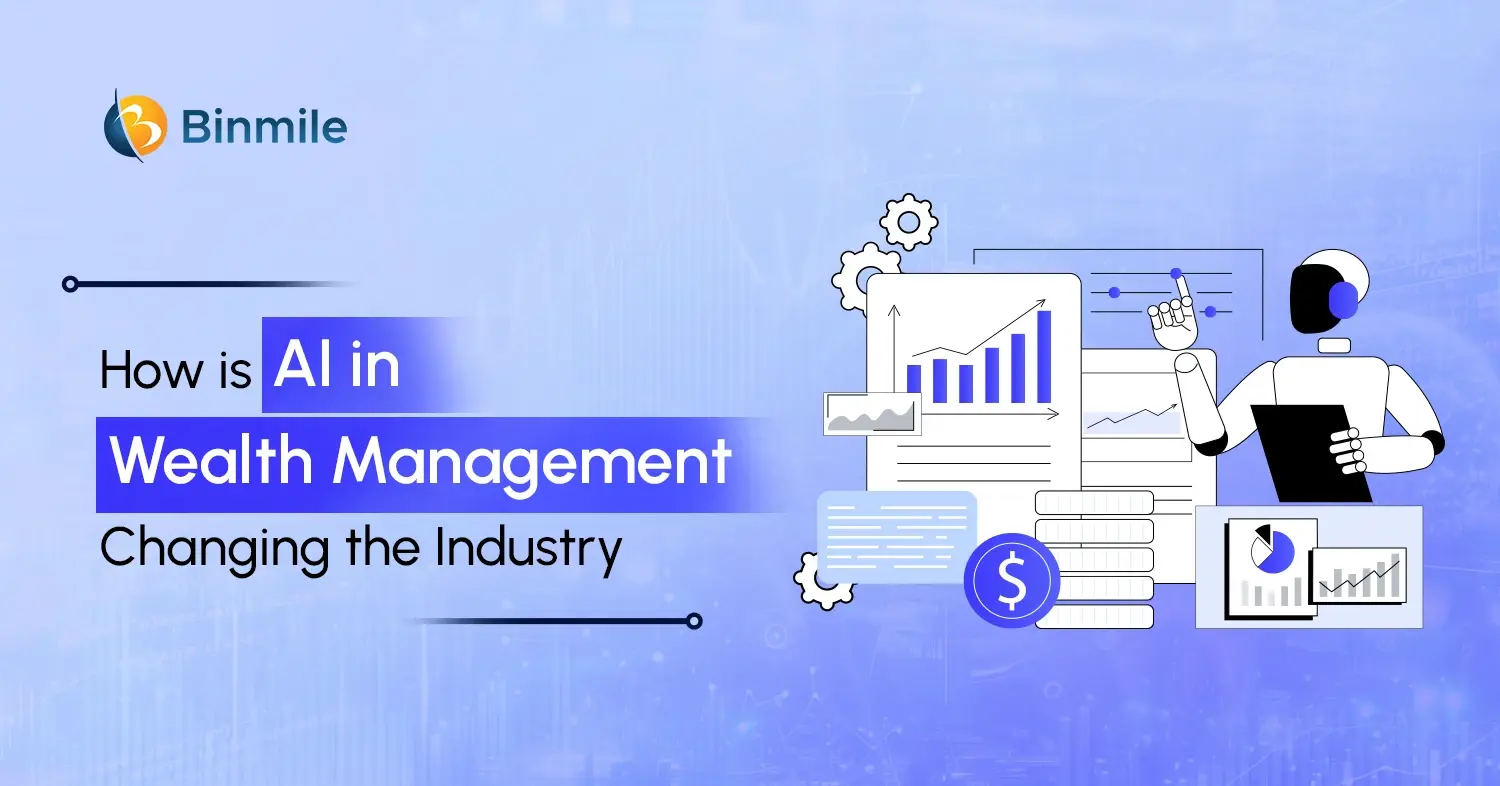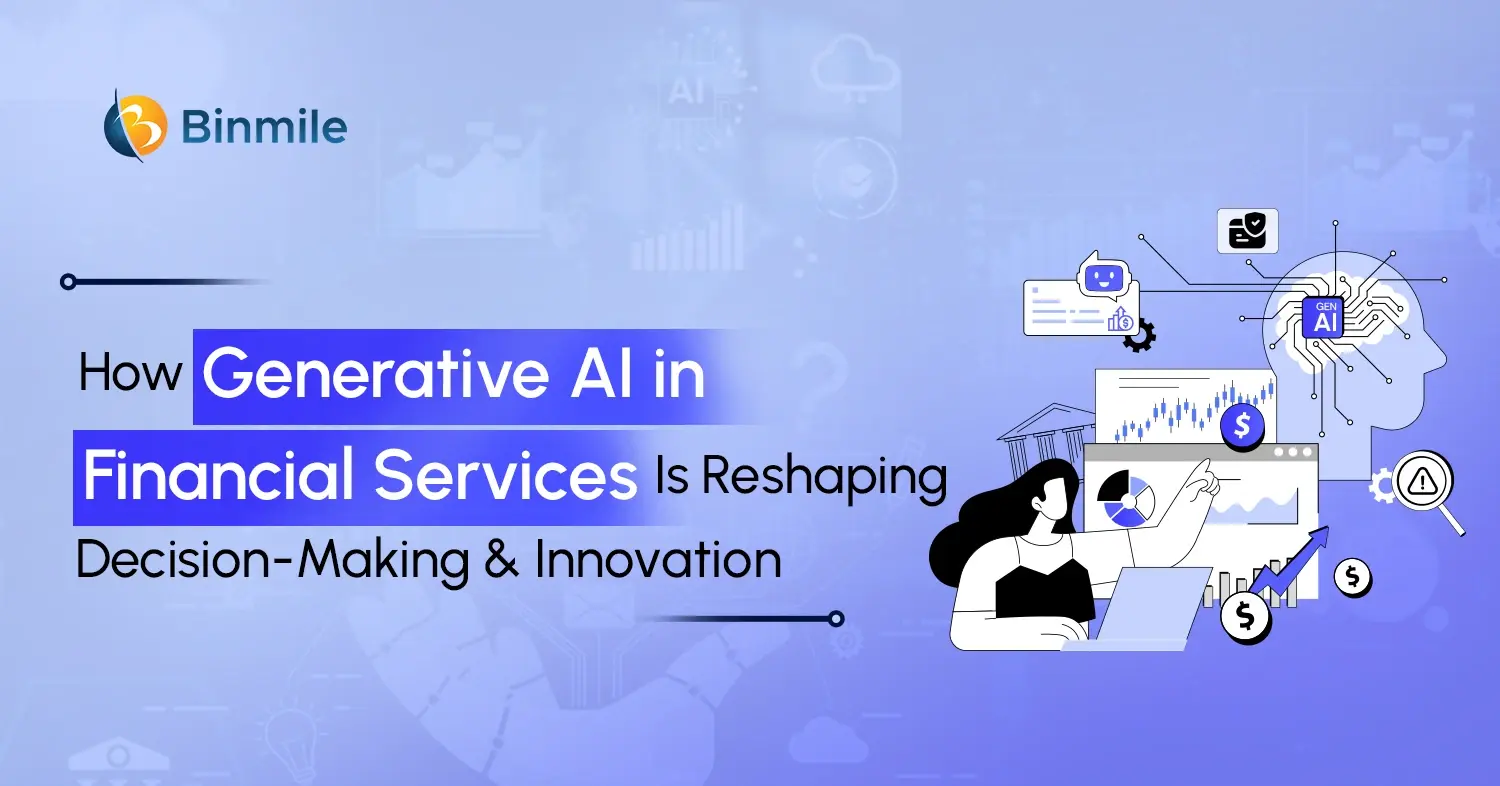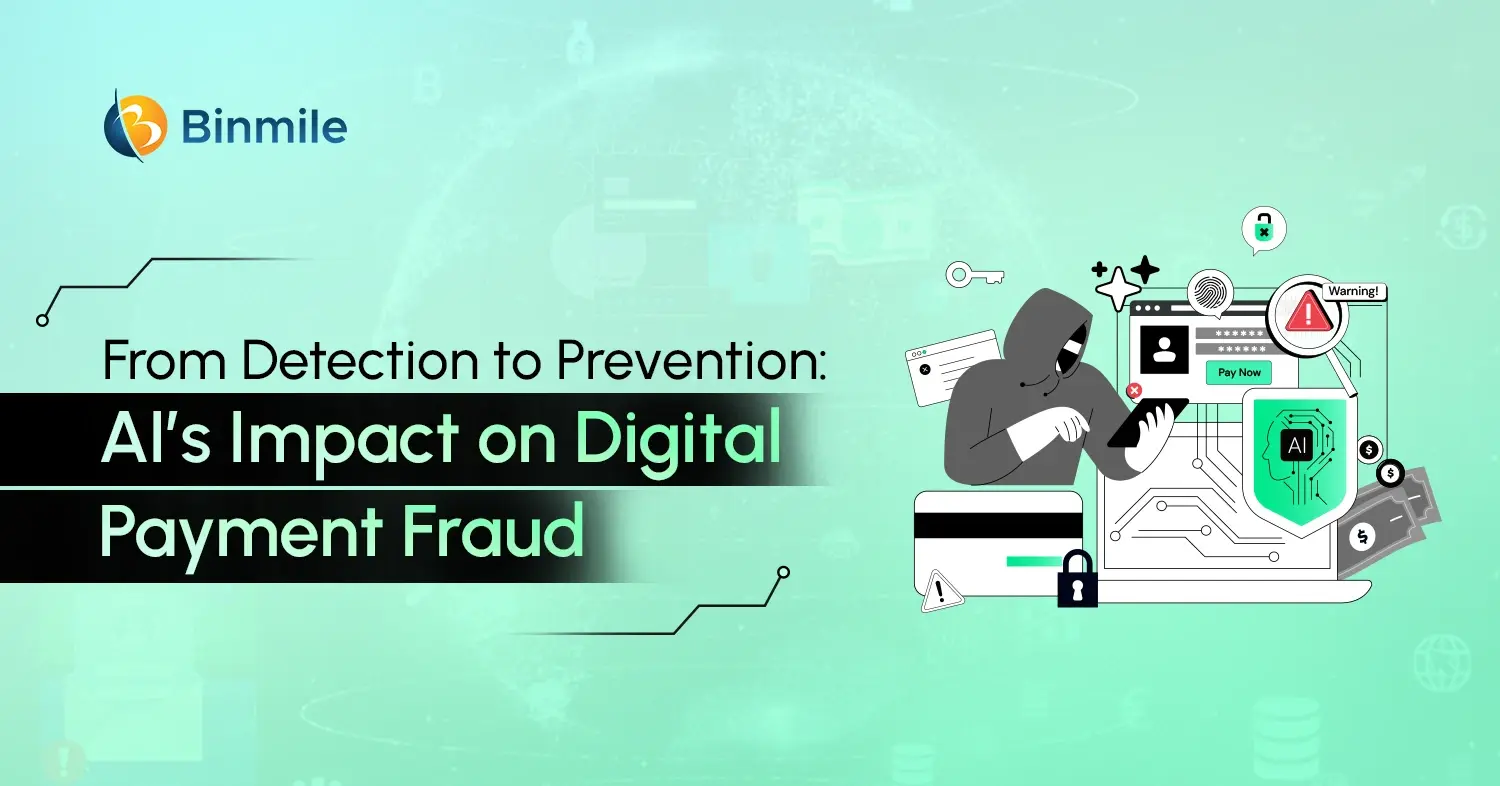Digital technology has compelled business owners to adopt digital payment solutions, while traditional payment methods are being replaced with more personalized, efficient, and secure alternatives. This digital transformation in commercial payments is reshaping the landscape of financial transactions, offering numerous benefits to both businesses and consumers. A digital-first approach is the demand of tech-savvy consumers as well as an essential part of modern-day fintech business models, therefore, integration of technology within a business’s payment system is a must. After all, digitalization offers an efficient, streamlined, secure, and intuitive digital payment process.
To stay relevant, digital transformation in businesses must embrace these commercial payment innovations, but how do they achieve this transformation? What are the ways digital transformation is changing financial transactions for businesses? Moreover, are there any digital payment trends that organizations must follow? If you’re also wondering about these questions, then this blog is for you. We’ll be delving into the different ways the future of commercial payments is reshaping by technology and also discuss transformative digital payment trends.
Impact of Digital Transformation in Commercial Payments: A Comprehensive Analysis
When discussing digital transformation in commercial payments, what are we primarily focusing on? The discussion shows how the integration of modern technologies such as blockchain technology, artificial technology, or even IoT, among others, into the commercial payments process improves efficiency, security, and customer experience. So, let’s discuss these changes in detail:

1: Instant Fund Transfer Revolution
Real-time payments allow for the instantaneous settlement of funds, operating around the clock. The impact on businesses is profound, as it significantly improves cash flow management by reducing the float time traditionally associated with payments. This immediateness supports just-in-time inventory management strategies, allowing companies to optimize their stock levels more effectively. Moreover, real-time payments enhance customer satisfaction by providing expedited transaction confirmations and facilitating faster error resolution and refunds when necessary.
2: Seamless System Connectivity
API integration allows for the seamless exchange of information and data between different applications, systems, and platforms, and with the induction of open banking, it’s building a thriving digital future. This seamless system connectivity facilitates straight-through processing, and API integration dramatically reduces the need for manual intervention, minimizing errors and increasing efficiency. Real-time data exchange between various systems such as ERP, CRM, and accounting software becomes possible, creating a more cohesive and synchronized business environment. This integration also supports omnichannel payment experiences, allowing customers to transact across various platforms seamlessly for better management of the payment experience.
3: Enhanced Security Through Blockchain Technology
Technologies such as blockchain technology or centralized ledgers are bringing decentralized elements to the payment process, which means digital payments can be verified and recorded without a central authority. This increases crypto transaction security, reduces the risk of fraud and manipulation, and benefits both businesses and consumers. Since blockchain reduces the number of intermediaries involved in international payments, it significantly lowers transaction costs, too. Additionally, blockchain supports the creation of new financial instruments like tokenized assets, opening up novel funding and investment opportunities.
4: Intelligent Payment Processing
Suppose AI algorithms can analyze vast amounts of transaction data to offer personalized financial products and services based on individual business patterns and needs. In that case, credit scoring models enhanced by machine learning provide more accurate risk assessments, enabling financial institutions to make better-informed lending decisions. In back-end operations, AI automates complex reconciliation processes, thus significantly reducing the time and resources required for such routine tasks. Moreover, AI-powered chatbots, AI in voice banking and virtual assistants are improving customer support in payments, offering instant, 24/7 assistance for common queries and issues. Thus, both AI and ML technologies are streamlining the payment process, boosting its security, and improving financial decision-making.
5: Scalable Payment Solutions
By reducing the need for on-premises infrastructure, cloud services platforms are significantly lowering the costs and maintenance burden for businesses of all sizes. The cloud enables rapid deployment of new payment features and updates, ensuring that businesses can quickly adapt to changing market needs. Additionally, these platforms are also improving disaster recovery and business continuity by offering robust backup and failover mechanisms. For businesses looking to expand globally, cloud platforms facilitate easier integration with localized payment methods and compliance with regional regulations. The scalability of cloud solutions also means that businesses can easily adjust their payment processing capacity as they grow and are thus democratizing access to advanced payment technologies.
6: Support for Multi-Channel Payments
With the advent of digital transformation in commercial payments, now not only businesses can offer multi-channel—such as mobile, online, and point-of-sale (POS)—but businesses can provide a unified experience to customers who may start a transaction on one platform and complete it on another. This flexibility in the payment platform ensures that customers can engage with your business wherever they feel most comfortable, leading to greater satisfaction and increased sales. Additionally, with the ever-growing IoT technology, the Internet of Payments, or IoP, is allowing fintech companies to process transactions over IoT devices, such as wearables or smart automobiles, thus providing your customers with a frictionless payment experience.
Partner with us to create user-friendly fintech solutions that drive engagement and streamline financial transactions.

Types & Trends to Watch for Digital Transformation in Commercial Payments in 2024
Digital transformation in commercial payments is rapidly evolving, driven by several key trends, the primary of which is the adoption of real-time payments, open banking, and digital wallets. These advancements are enhancing convenience, security, and efficiency in transactions, positioning digital payments as a cornerstone of modern economies. When we discuss the global payments market revenue, it’s expected to grow from $2.85 trillion in 2024 to $4.78 trillion by 2029. Additionally, the total transaction value in digital payments is projected to reach $11.55 trillion in 2024.
Types of Digital Payment Methods Your Business Must Use
With modern consumers expecting convenience of use and more personalized payment processes to stay relevant and open different revenue streams. Therefore, as a business, you must offer different payment methods that will improve their user experience and offer them a security that is tailored to their unique needs. So, let’s discuss such digital payment trends:

- Devices With Biometric Authentication: It offers an extra layer of verification that uses fingerprint scanners, facial recognition, iris recognition, or even heartbeat analysis and vein mapping to prevent identity theft and fraud. Having this in your payment method lets you protect your data as well as your customers’ information and achieve digital security.
- Mobile Point of Sales (mPOS): Convenient payment processing methods like mobile point of sales should be a top priority for businesses today, and they include tablets, smartphones, or other wireless devices that use an app and a card reader to process payments as a cash register would. It not only offers you the freedom to eliminate a central checkout area and accept payments from anywhere in their store and even off-site. This is beneficial for your customers as well, as mPOS systems can accommodate various payment methods, so it reduces wait times and creates a more personalized shopping experience.
- Smart Speakers: Integrating voice commands through smart speakers such as Google Home, Apple HomePod, and Amazon Echo gives consumers the ability to make instant payments or purchases. This is essential for your business if you’re in the eCommerce segment, as 35% of users buy products like groceries and clothing through their smart speakers.
- Contactless Payment: When you provide contactless payment features to your consumers, it enables them to transfer money, purchase products, or pay bills with the tap of a finger. This seamless checkout experience not only encourages customers to complete their purchases but also offers you a faster, safer, easier to collect, and less expensive option for your business.
Revolutionize your banking operations with our bespoke software development solutions designed for modern financial institutions.

Summing It Up
We have so far understood the way digital transformation in commercial payments is revolutionizing the digital payment solutions landscape. Today’s tech-savvy customers expect digital payments to be fast, convenient, and secure. The integration of modern technologies like payment orchestration is helping businesses achieve this, enhance the overall payment experience, and increase the likelihood of repeat business. With increasing competition, organizations must adapt to these changes to stay relevant and cater to customer demands. Moreover, the advantages of adopting commercial payment innovations go beyond efficiency or boosting customer experiences—it fundamentally helps reshape the financial industry.
However, the shift from traditional payment methods to digital solutions can be challenging, especially if you’re a start-up or small business owner. Other than huge investments and a cumbersome process of data migration, you could also face potential security concerns, a lack of digital literacy among some customers, or a potential disruption to established workflows. But it is not difficult when you consult a professional fintech app development company. The company’s expertise in creating fintech apps with a powerful platform to help your customers get easy access and flexible payment processing services. Our developers are well-versed in all the major state-of-the-art technologies needed to integrate an ideal fintech solution into your business model and empower you to be the driving forces behind this transformation.
Common Queries Answered
Digital transformation enhances commercial payment processes by automating workflows, reducing manual errors, and increasing processing speed. It enables real-time tracking, better fraud prevention, and improved compliance with regulatory standards. Additionally, it fosters seamless integration with other financial systems, offering businesses greater efficiency and transparency.
The key technologies driving digital transformation in payments include blockchain for secure and transparent transactions, AI and machine learning for fraud detection and personalized experiences, APIs for seamless integration, and mobile technologies for on-the-go payments. Additionally, cloud computing enhances scalability, while data analytics enables better insights into payment behaviors and trends.
Digital payment solutions enhance customer experiences by providing faster, more convenient, and secure transactions. Features like one-click payments, multiple payment options, and seamless mobile integrations make purchasing easier. Real-time payment confirmations, personalized offers, and better security measures further build customer trust and satisfaction.









